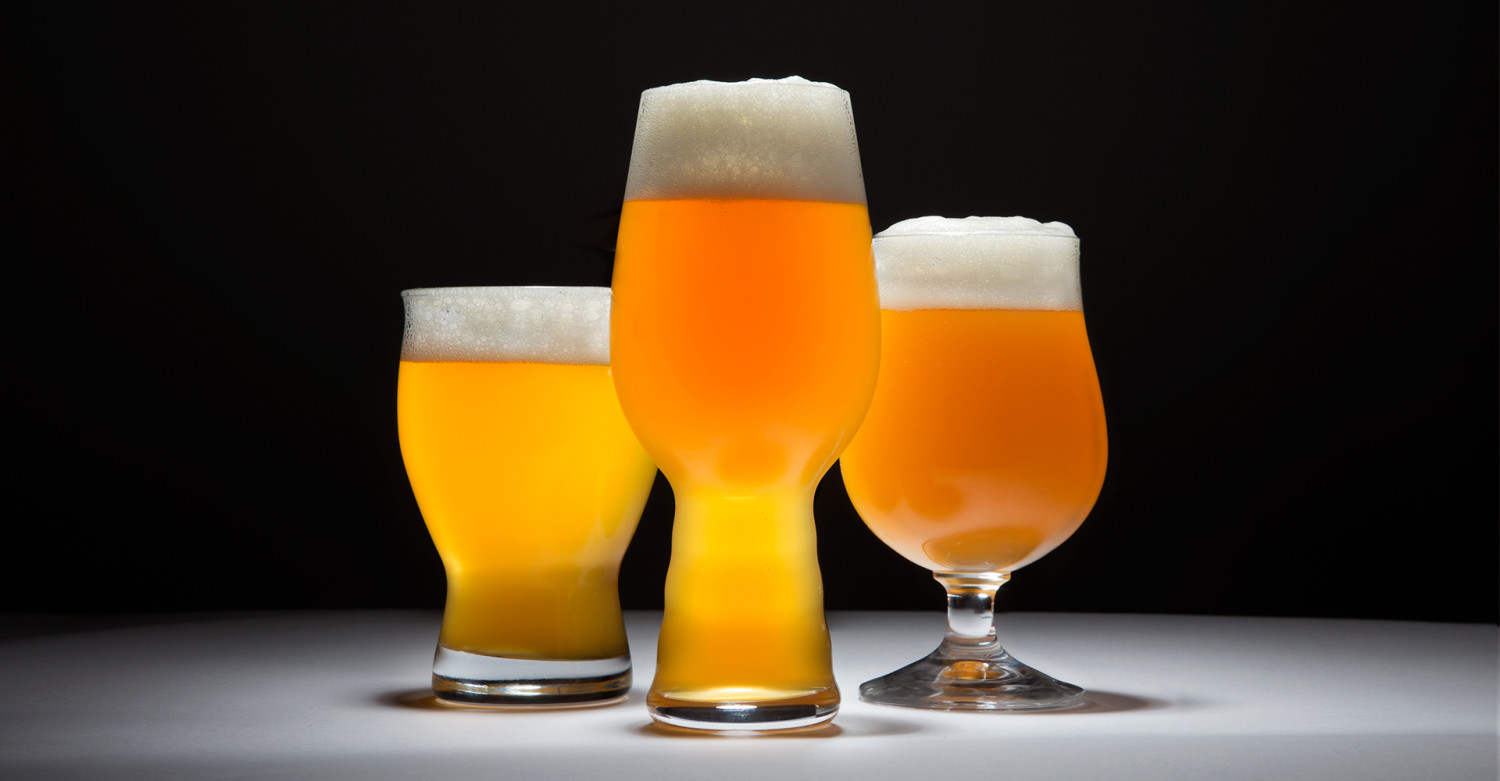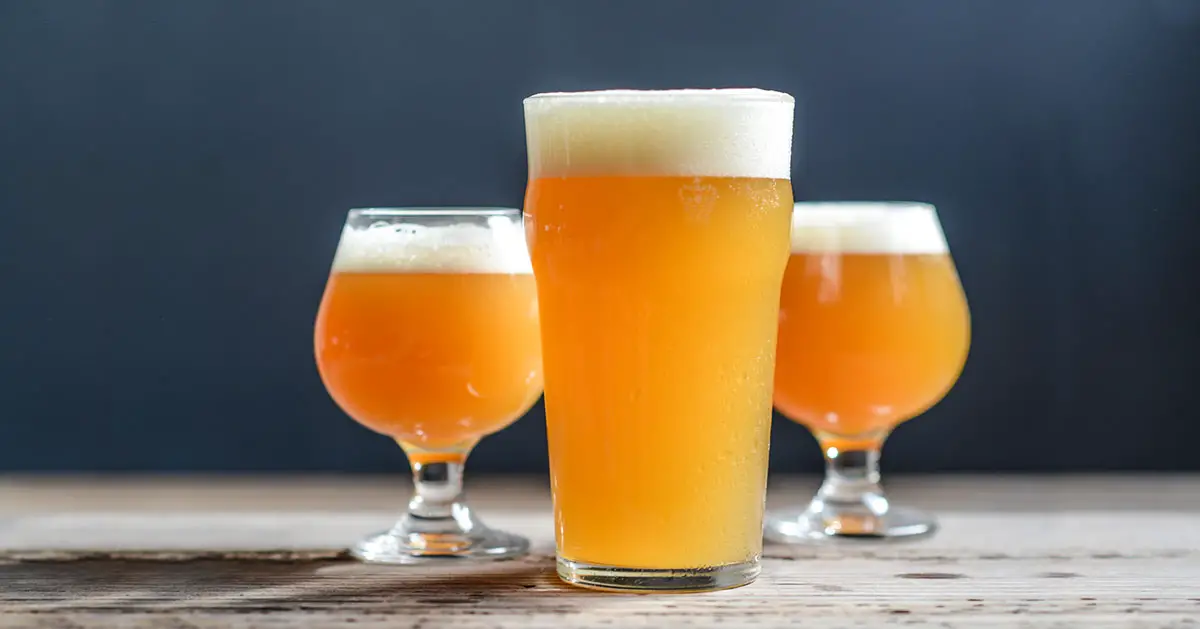India Pale Ale, often known as IPA, is a variety of craft beers that could remain out from the others in appeal and divide beer drinkers more than any other. Due to its distinctively harsh and hop-forward flavor, the IPA has an extensive fan base, sparking conversations, celebrations, and a whole society of beer fans.
But where does this interest come from? Why does this particular style of beer appeal to people from diverse backgrounds? We examine the background, flavor profile, and cultural setting that support the IPAs’ lasting popularity to provide answers to these issues.
Table of Contents
ToggleTop Reasons Why People Like IPAs

Robust Flavor Profile
India Pale Ales (IPAs) beer is distinguished from other types of beer by its unique and severe bitterness and pungent hop smells. These qualities combine to provide a distinctive, vivid, and robust taste profile. The natural sugar content of malt frequently counteracts the bitterness of IPAs, creating a complicated interplay of flavors that tempts the palette.
Aromatic Complexity
One of the most captivating aspects of IPAs is their ability to offer a diverse range of aromatic attributes. From the delicate scent of flowers to the zesty citrus notes, the earthy pine tones, and even hints of tropical fruits, each sip of an IPA engages multiple senses. This aromatic complexity adds an extra layer of enjoyment, enriching the overall drinking experience.
Historical Significance
The roots of IPAs extend deep into history, giving them an air of tradition and narrative. Originally developed to endure long sea voyages during the colonial era, IPAs were designed to withstand the rigors of time and travel. This historical connection imparts a sense of legacy to each sip, reminding us of the journey this style of beer has undertaken.
Innovation and Craftsmanship
The IPA genre and its origin have been given a fresh start by the craft beer activity, which promotes innovation, excellence, and discovery. Breweries continuously test new ingredients, brewing methods, and hop types to push the limits of what an IPA can be. This dedication to innovation maintains the look interesting and current.
Cultural Identity
IPAs have become emblematic of the craft brewery movement, symbolizing the unique skills and distinctive qualities of local breweries. They serve as identifiers, representing the character and ethos of the breweries that create them. In doing so, IPAs contribute to the rich tapestry of regional brewing culture.
Community Engagement
Beyond the beverage itself, IPAs have fostered a sense of community among enthusiasts. Gatherings, festivals, and online groups centered around IPAs provide a platform for interaction, knowledge sharing, and mutual learning. These communities celebrate the love for the style and create connections among like-minded individuals.
Versatility in Food Pairing
Thanks to their powerful and varied tastes, IPAs go well with a wide variety of foods. The gastronomic experience is elevated by their capacity to contrast and compliment various flavors, improving the pleasure of the meal and the beer.
Visual Appeal
IPAs often feature eye-catching labeling and packaging, making them visually appealing even before the first sip. The aesthetics of the packaging contribute to the overall experience and add an element of artistry to the enjoyment of the beer.
Regional and Global Diversity
IPAs come in various substyles with distinct regional characteristics. From West Coast to New England, from Belgian-inspired to hazy and juicy, the spectrum of IPA offerings allows enthusiasts to explore a multitude of flavor profiles from around the world.
Influence of Social Media
The rise of social media has enabled beer aficionados to connect globally, sharing their experiences, recommendations, and newfound discoveries. Social media platforms have played a significant role in propagating awareness of IPAs, contributing to their worldwide popularity.
Economic Impact
The surge in IPA popularity has boosted the success of craft breweries. These beers have a dedicated fan base, and their demand has propelled small and independent breweries to financial prosperity. In turn, this has brought diversity and vibrancy to the beer industry.
Environmental Awareness
Some brewers emphasize environmentally-friendly practices, resonating with environmentally-conscious consumers. The alignment of eco-friendly values with beer preferences provides an added layer of satisfaction for those concerned about the planet.
Variability in Taste Sensitivity
Human genetics contribute to the way individuals perceive taste, and some people may be more sensitive to the bitterness of IPAs due to their genetic makeup. This inherent variability in taste preferences adds a layer of subjectivity to the appreciation of IPAs.
Continuous Exploration
The world of IPAs is ever-evolving due to ongoing research into new hop varieties, brewing methods, and flavor-enhancing additives. This dynamic exploration ensures that there’s always something new to discover within the IPA category.
Culinary Adventure
Much like a culinary journey that explores various foods and flavors, drinking IPAs can be seen as an adventure in expanding one’s taste horizons. Each IPA offers a unique combination of flavors, encouraging enthusiasts to broaden their palate.
Status Symbol
For some beer connoisseurs, savoring rare or limited-edition IPAs is a way to signify their refined taste and discerning palate. These sought-after brews become status symbols, symbolizing exclusivity and appreciation for quality.
Tradition and Nostalgia
Long-time IPA enthusiasts often associate the style with personal memories and experiences. For these individuals, sipping on an IPA can evoke a sense of nostalgia and connection to the past, adding an emotional layer to the enjoyment.
Setting Trends
The beer business has radically changed due to IPAs’ stratospheric ascent. Due to the brewers’ encouragement to experiment with various beer varieties as a result of this success, the beer landscape has improved overall thanks to the variety of its options.
Routine and Relaxation
Enjoying an IPA can become a cherished ritual, offering a moment of respite and relaxation at the end of a challenging day. The act of sipping an IPA can serve as a comforting routine that provides a brief oasis of calm.
Conclusion
The evolution of the India Pale Ale from a historical necessity to a global phenomenon that tantalizes the palate and sparks debates says eloquently about its continuing popularity. The IPA offers a sensory experience that appeals to various beer drinkers thanks to its strong tastes, bitterness, and fragrant complexity. The IPA has been transformed from a simple beverage to a cultural phenomenon thanks to its cultural importance, variety of substyles, and feeling of community it generates.

I am a passionate beer connoisseur with a deep appreciation for the art and science of brewing. With years of experience tasting and evaluating various beers, I love to share my opinions and insights with others and I am always eager to engage in lively discussions about my favorite beverage.
















